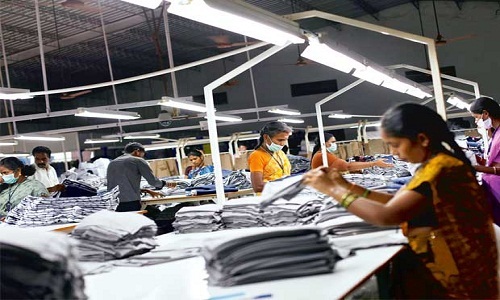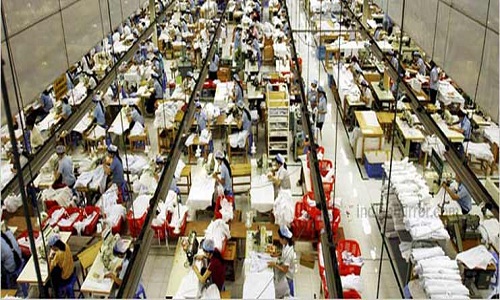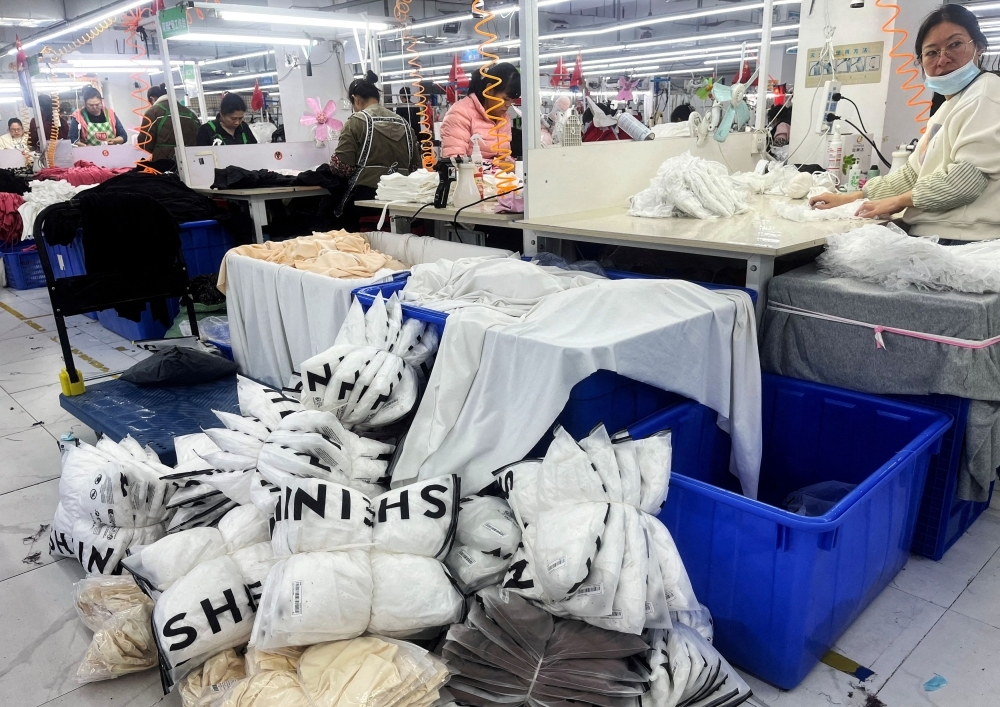FW
Vietnam’s stock market reacted immediately to Britain's vote to leave the European Union, but industry insiders believe immediate Brexit impacts on the market as well as the bilateral trade ties between the two countries are unlikely.
However, in terms of bilateral trade ties between Vietnam and the UK, industry insiders said the situation will become a little rougher in the immediate term, but there will be no significant impacts from the Brexit.
According to Vu Duc Giang, chairman of the Vietnam Textile and Apparel Association (Vitas), Britain’s vote to leave the EU will have certain impacts on the roadmap to realise the free trade agreement between Vietnam and the EU in the coming time. The affect will not be significant as the UK currently accounts for only 3 per cent of Vietnam’s textile export to the EU, he explained.
Similarly, it is not likely for the Vietnamese footwear sector to be affected by the Brexit, said Nguyen Duc Thanh, chairman of the Vietnam Leather, Footwear and Handbag Association (Lefaso). Compared with other EU countries, the UK also accounts for a modest share of Vietnam’s footwear export, so the impacts, if any, will not be significant, he elaborated.
A weaker ringgit will be the immediate impact to Malaysia from Brexit, which fell steadily against the US dollar at a pace last seen in the Asian financial crisis of 1997/1998 by midday yesterday as investors dumped riskier assets in emerging markets for so-called safe-haven assets such as US treasuries, Japanese government bonds, German bunds and gold.
Malaysian Rating Corp Bhd chief economist Nor Zahidi Alias says the whole issue boils down to uncertainties that will have impact on business decisions and the real economy especially in Europe. Brexit will cause a knee jerk reaction to the financial markets - currencies being the most vulnerable. The volatility in equities and bonds cannot be underestimated in the short term but will eventually subside when a clearer picture emerges.
For now, the pound sterling has weakened against the ringgit but the cross-rate will be up for a lot of volatile trading. Analysts have pointed out before the referendum that the ringgit and the rupiah were the most vulnerable Asean currencies to swings associated to the uncertainties surrounding the aftermath of Brexit.
The direction of commodity prices and crude oil in particular, will be key to the ringgit’s performance. The global crude oil benchmark, Brent, declined by more than 4 per cent in the late morning as British media confirmed that Brexit was imminent. There is every indication that crude oil prices will continue to be volatile because demand may be crimped by Brexit uncertainties stemming from recessions in Britain and the EU, potentially slower US economic growth and the unresolved Chinese debt crisis.
Britain's exit from the European Union, that has led to a 10% drop in the value of the pound, could lead to the leather export industry suffering over 10% reduction in value.
Rafeeque Ahmed, chairman, Council for Leather Exports, reportedly said, “With UK being the second largest exporter from India (after the US), with a 12.5% market share, leather exporters across the country would face losses. We could increase the prices to maintain margins, but no one would be willing to buy, given the economic conditions. Substantial number of exporters across Tamil Nadu, Kanpur, Agra etc, would be affected."
It was felt while the losses are likely to be significant, it is too early to look out for alternatives to keep the business running.
The Indian leather industry, that suffered over 10% reduction in overall exports in FY 2015-16 owing to poor performance of the European market, was showing signs of revival with increase in the number of orders, following increasing cost of
According to experts, Brexit will hit the Pakistan textile sector the most. However, the negative impact emanating from the Brexit will be comparatively less for Pakistan’s economy as it is relatively insulated from global markets. This is because Pakistan’s exports are only 7 per cent of the country’s total Gross Domestic product (GDP). They added that lower commodity prices could result in even lower inflation expectations, which will bode negative for outlook of banking sector.
Brexit has come as a surprise for global markets where Pound Sterling to $ has come off by 7 per cent to 1.35 (lowest since 1985) as compared to yesterday where the Pound Sterling to $ was 1.45. Global markets have also taken a toll with across the board losses.
International oil prices have come off as a result of global uncertainty and concerns over a recession in UK with a knock off effect in EU. Oil prices are down 4 per cent today with WTI trading at $47. This has led to weakness in local oil Exploration and Production (E&P) companies. Yen has appreciated as a result of Brexit and is trading at 101.9 to US$, up by 3 per cent as of yesterday. This will be negative for local auto sector as portion of their costs are denominated in Yen.
Members of the fashion industry took to social media to voice their opinions on the outcome of Brexit - overwhelmingly, disappointment. I’ve never been so unproud to be British, Katie Grand, the editor in chief of Love magazine, wrote on Instagram.
Fear has been the common motivator on both sides of the issue, the New York Times wrote. That underlying xenophobia was a large part of fashion players’ frustration with the outcome. As Jonathan Anderson of Loewe and J.W. Anderson said on Instagram, ‘Fear is just a virus.’ But the Brexit, as the departure from the E.U. is known, could create challenges for their businesses, too, and even for shoppers.
Many British luxury brands, like Burberry, buy fabrics and produce clothing in Europe. A weaker pound could send manufacturing prices soaring. Either the brand absorbs that, or it passes the cost on to consumers. On the flip side, that might create an opportunity for French and Italian fashion brands, which already make up half of the global luxury market, to gain further market share.
For foreigners who happen to be in London this weekend, however, it might not be a bad idea to take a shopping trip. A pair of heeled Gucci loafers, currently available on Net-a-Porter, currently cost £420 - $580 at current exchange rates. A month ago, they would have cost you about $613. A metallic jacquard Mary Katrantzou dress from Selfridges, which goes for £1,785, translates to $2,468 at the moment — down from roughly $2,606 last month.
Even though the Government of India and economists are saying that India is all prepared to deal with the short term and medium term impacts of Britain’s exit from European Union (EU), the exporters such as textile and handicrafts, are deeply concerned about the impact on the export orders already placed.
According to the President of the Textile Association of India, Arvind Sinha, the major impact of Brexit will be on booked export orders of textile and handicrafts because both the currencies will be affected due to Brexit. Both the currencies - Euro and Pound - will be affected and business will be affected as realisation is going down, he observed.
Sinha added that the situation would be good as industrialisation will take place in Britain and employment has to be created. The flexibility of EU will go and for textile sector, it is a good thing.
Sinha further explained that, whatever business we are doing now that is generally in Euro but the large companies which trade in pound will be affected whether the pound will crash as it is already going down. Pound will go down by at least 15-20 per cent.
Whereas, the Vice Chairman of Export Promotion Council of India (EPCH) Rajesh Kumar Jain opined that handicraft sector has to face the direct loss of around 10 per cent now and same would increase to 15 per cent if euro and pound to go down. Handicraft and textile would be affected majorly due to this certain change.
Meanwhile, Finance Minister Arun Jaitley said that India is well prepared to deal with short and medium-term consequences of Brexit.
In the wake of Britain’s exit from the European Union {EU}, Sri Lanka would face negative consequences across the board in many areas, according to the country’s economists and exporters.
Said Head of the Department of Economics, Faculty of Arts of the University of Colombo, Prof. Ven Bellanvila Wimalaratana, the Brexit, which he deemed was a divorce of sorts, which would cause an initial shock in the markets in the short term (one year to one and a half years to a maximum of two years), would locally directly adversely impact the currency market, trade including exports (including textiles), economic growth performance, investments including foreign direct investments (FDIs), tourism, and international aid and other support received by the country, thereby causing mostly negative implications.
Wimalaratana highlighted that while there were a number of Sri Lankans working in Britain and the countries of the EU and some were permanently settled there, their remittances too would be affected. While we are at present not receiving much in the way of FDIs, we may not be able to expect FDIs as much as we hoped we would, he remarked.
Meanwhile, Secretary General of the Joint Apparel Association Forum (JAAF), Tully Cooray said that there would not be immediate changes but added that they were adopting a wait-and-watch approach. He said that they would have to request the UK for a fresh preferential system in the event the country decides to deviate from the current customary practices.
As Britons voted to leave the European Union, Bangladesh runs the risk of losing duty benefits on its annual exports of more than $3 billion to the UK.
Apart from exports to the UK, remittance income from the European country may come under strain as an impact of its departure from the EU. In the long run, Bangladesh's economy might take a hit if the current uncertainty in the global economy persists further.
According to Zahid, lead economist of the World Bank in Dhaka, the devaluation of the pound may have an immediate impact on Bangladesh's exports and remittance. However, the devaluation resulted from an overreaction which would cool down soon.
The UK is Bangladesh's third largest export destination after the US and Germany, and the second largest in Europe.
Bangladesh exported goods worth $3.23 billion to the UK in 2014-15, registering a 21.28 percent growth from the previous year, according to the Export Promotion Bureau (EPB). Garments make up nearly 90 per cent of the export figure.
As Britain chose to leave the EU, economists and exporters said it would be a major challenge for Bangladesh to retain duty-free trade privilege of its goods to the UK.
Because of Brexit, the whole EU as well as the UK would face an economic crisis. As a result, people would buy less and the exporting countries would feel the pinch, said Faruque Hassan, vice president of Bangladesh Garment Manufacturers and Exporters Association (BGMEA).
"But the textile industry hopes Brexit could mean India emerging as a stronger political and trade partner for the UK, thereby expediting work on FTA. Garment exporters in Tirupur are worried as UK decided to exit from EU. For India’s readymade garments (RMG) exports, EU is a major destination. In 2015-16, total RMG exports from India was Rs 1,11,236 crore, of which EU's share was 36.97 per cent."

But the textile industry hopes Brexit could mean India emerging as a stronger political and trade partner for the UK, thereby expediting work on FTA. Garment exporters in Tirupur are worried as UK decided to exit from EU. For India’s readymade garments (RMG) exports, EU is a major destination. In 2015-16, total RMG exports from India was Rs 1,11,236 crore, of which EU's share was 36.97 per cent.
Estee Exports’ managing director, T. Thirukumaran was sounding worried after he heard the news that UK has decided to exit from the European Union which in turn impacted the currency. He is one of the exporters from the tiny town of Tirupur, and 50 per cent of the business comes from Euro and he has already lost 5 per cent of the value. Five per cent may sound small, but for an exporter like us, it’s big especially given the current circumstances, according to Thirukumaran.

While similar view is echoed by many of the exporters from this tiny town, which exports around Rs 26,000 crore worth of knitwear, A. Sakthivel, president, Tirupur Exporters Association, tries to cheer them up by giving the positive side of the story.
Sakthivel said that it will have an impact but it will be temporary but in the long run this will help them since UK will support more which it could not when it was part of the EU.
Positive side
The apparel and made-ups industries are hoping the Indian textile industry will only stand to benefit from Brexit given the rupee devaluation against pound and euro.
According to Rahul Mehta, president of Clothing Manufacturers' Association of India (CMAI), in the immediate, Indian apparel exporters should only benefit from this and exports to UK and Europe will be more remunerative for us due to rupee devaluation. Of the roughly $16-17 billion of Indian apparel exports, Europe forms 45 per cent, within which UK forms roughly 40 per cent. However, for made-ups, share of Europe in exports come to roughly around 20-25 per cent, of which UK forms around 15-20 per cent.
A senior official at Welspun Group on condition of anonymity said that, though a small share, UK's exit from EU should benefit the Indian made-ups industry due to rupee devaluation. Welspun is a leading home textiles or made-ups exporter from India. Similarly, the textile industry also hopes Brexit could mean India emerging as a stronger political and trade partner for the UK, thereby expediting work on free trade agreement (FTA).
Mehta added that even EU could now look at India favourably with regard to FTAs and review the same soon. This should also benefit the Indian textiles industry.

Out of the total, knitwear exports is around Rs 50,150 crore of which Tiurupur’s share is around Rs 23,050 crore or 45.96 per cent. Total knitwear export to the UK is around Rs 5,519 crore and from Tirupur it is around 30 per cent.
Worried about EU’s future
Indian exporters are also worried about the existence of EU itself. An exporter said that now that UK has exited many may follow. In such a scenario, it will take a long time for India to enter into FTA with each country and negotiation is going to be a major challenge.
On this note, Somi Hazari, MD, Shosova Properties, said that the situation is positive for India since FTA with UK can happen fast and doesn’t have to depend on the EU.
Moreover, UK’s exit can open doors for some more business on the long run, feels many exporters. For example, UK has been buying high-end products from Italy. Before EU, it used to be from countries like India, which has been enjoying EU member status in tax concessions and others. Now that UK has exited, it would attract customs duty and other things, which will make Italian products costlier and that would open doors for countries like India.
There is a mix reaction or one can call it confusion among garment exporters from India on what the future is going to be.
Techtextil, the international trade fair for technical textiles and nonwovens for the first time will make a presentation at Fashiontech, the Conference on the Future of Fashion. To be held on June 29, as part of the summer edition of the Berlin Fashion Week 2016. Together with two of its exhibitors, Techtextil will illustrate the future of intelligent textiles under the banner, ‘Textile innovations powered by Techtextil’.
In addition to Thimo Schwenzfeier, Head of Marketing Communication, Textiles & Textile Technologies at Messe Frankfurt, Dr Jan Zimmermann of Switzerland’s Forster & Rohner will speak about the development of functional textile products, such as a jacket decorated with LEDs for Bogner, a jacket with integrated heating elements for Zegna and decorative fabrics with integrated lighting elements. Philipp G. Schwarz of Nuremburg-based Wearable Life Sciences will show how his Antelope label is conquering the market with performance-enhancing sportswear that combines functional textiles with electric muscle stimulation. These products will also be on show at the associated Techtextil exhibition stand.
Twice a year during the Berlin Fashion Week, Fashiontech is the platform for the latest trends and business models in the fields of fashion design, production and marketing, especially with respect to the links between fashion and technology. Fashiontech is organised by Premium Exhibitions, which present selected collections by international newcomers and exclusive trend products, and Seek, Berlin’s leading trade fair for contemporary fashion.












